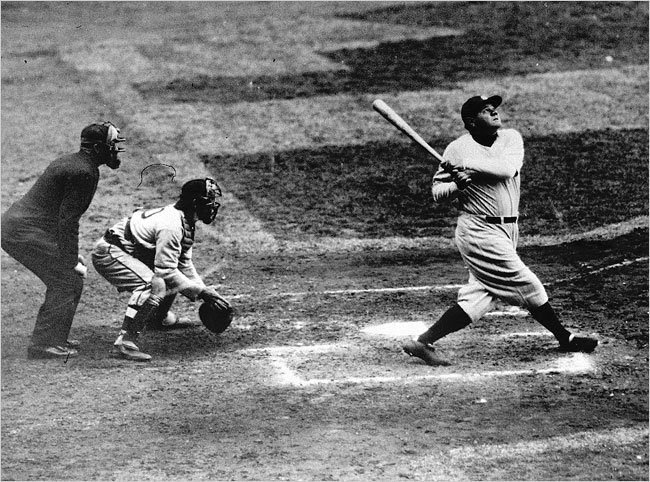 The Georgia Council recently played host to a great group of individuals from Argentina, Indonesia, Mexico, Paraguay and South Africa. While in town, our guests spent time learning about some of the strategies we use to raise the money that allows us to help teachers teach economics all over the state. Thank you to Rob Baskin at Manning, Selvage & Lee for having us over for lunch on Monday and for his great talk on marketing and promotion. Thank you to every person at the Atlanta Fed for having us over for lunch on Tuesday and for showing our guests how a Central Bank can help educate students and teachers.
The Georgia Council recently played host to a great group of individuals from Argentina, Indonesia, Mexico, Paraguay and South Africa. While in town, our guests spent time learning about some of the strategies we use to raise the money that allows us to help teachers teach economics all over the state. Thank you to Rob Baskin at Manning, Selvage & Lee for having us over for lunch on Monday and for his great talk on marketing and promotion. Thank you to every person at the Atlanta Fed for having us over for lunch on Tuesday and for showing our guests how a Central Bank can help educate students and teachers.Jul 31, 2010
International Visit
 The Georgia Council recently played host to a great group of individuals from Argentina, Indonesia, Mexico, Paraguay and South Africa. While in town, our guests spent time learning about some of the strategies we use to raise the money that allows us to help teachers teach economics all over the state. Thank you to Rob Baskin at Manning, Selvage & Lee for having us over for lunch on Monday and for his great talk on marketing and promotion. Thank you to every person at the Atlanta Fed for having us over for lunch on Tuesday and for showing our guests how a Central Bank can help educate students and teachers.
The Georgia Council recently played host to a great group of individuals from Argentina, Indonesia, Mexico, Paraguay and South Africa. While in town, our guests spent time learning about some of the strategies we use to raise the money that allows us to help teachers teach economics all over the state. Thank you to Rob Baskin at Manning, Selvage & Lee for having us over for lunch on Monday and for his great talk on marketing and promotion. Thank you to every person at the Atlanta Fed for having us over for lunch on Tuesday and for showing our guests how a Central Bank can help educate students and teachers.Jul 29, 2010
$1 Trillion Would Buy ...
 A whole lot of "stuff" that's for sure. I always liked sharing these kinds of stories with my students to show what the humongous national debt/deficit numbers actually looked like in terms that they could easily understand.
A whole lot of "stuff" that's for sure. I always liked sharing these kinds of stories with my students to show what the humongous national debt/deficit numbers actually looked like in terms that they could easily understand.Every single student you teach knows what a chocolate bar costs...tell them $1 trillion dollars could purchase 1.33 trillion (64 million tons) chocolate bars.
Jul 28, 2010
Hartsfield-Jackson Atlanta International Beast
 Hey all of you 8th grade teachers out there. Do me a favor and go look at standard SS8G2.
Hey all of you 8th grade teachers out there. Do me a favor and go look at standard SS8G2."The student will explain how the Interstate Highway System, Hartsfield-Jackson International Airport, and Georgia’s deep water ports, and the railroads help drive the state’s economy."
Well, this publication has got you covered as far as Hartsfield-Jackson is concerned. Good grief, that airport pumps a lot of money into the local economy. Can you say "multiplier effect"?
Jul 27, 2010
The Trading Game
 In this lesson students will learn about the gains from trade. Students will participate in a trading game that will demonstrate that trade can make everyone better off.
In this lesson students will learn about the gains from trade. Students will participate in a trading game that will demonstrate that trade can make everyone better off.Sound interesting? You can find all of the details right here.
This one fits perfectly into the 6th & 7th grade standards, as well as, the high school econ course. Give it a try and let us know what you think.
Jul 26, 2010
Hitting the Jackpot
 How many of your students are going to be pro athletes the day after high school graduation? Ask that question and I bet a lot of hands will go up in your classroom. Everyone wants to be the next Peyton Manning. The next A-Rod. The next Serena Williams. The next Tiger Woods. Well, maybe not him so much anymore, but the point is, so many students want the lives of these athletes because of the huge sums of $$$$ being pull down each year. Sports Illustrated just released their annual "Fortunate 50" list. It seems Mr. Woods is still doing OK despite his, ahem, "marital issues."
How many of your students are going to be pro athletes the day after high school graduation? Ask that question and I bet a lot of hands will go up in your classroom. Everyone wants to be the next Peyton Manning. The next A-Rod. The next Serena Williams. The next Tiger Woods. Well, maybe not him so much anymore, but the point is, so many students want the lives of these athletes because of the huge sums of $$$$ being pull down each year. Sports Illustrated just released their annual "Fortunate 50" list. It seems Mr. Woods is still doing OK despite his, ahem, "marital issues."After asking your students the question about becoming pro athletes, ask them to tell you what they are going to do with all of their millions once they sign that huge contract. Put them on the spot, make them give you specifics.
If they fail to give you an informed and practical answer tell them that they are not alone. This article is chock-full of examples of athletes that had no clue about financial planning and investing wisely. Make it required reading for each student that raised his or hand.
If they fail to give you an informed and practical answer tell them that they are not alone. This article is chock-full of examples of athletes that had no clue about financial planning and investing wisely. Make it required reading for each student that raised his or hand.
Jul 24, 2010
Your Weekend Reading
 The "Man, I'm having a hard time getting excited about teaching that personal finance unit this semester" edition.
The "Man, I'm having a hard time getting excited about teaching that personal finance unit this semester" edition.Jul 22, 2010
They Can't All Be Bon Jovi
 Who doesn't love a good summer concert? Every year you can count on your favorite band/artist taking it out on the road for the big summer festival or extended tour that takes them from Tokyo to Tulsa. Normally bands load up on the summer dates and cash in the big $$$$$$. Not this summer. Seems that more than a few concert goers have decided to stay home and watch Dancing With the Stars reruns instead.
Who doesn't love a good summer concert? Every year you can count on your favorite band/artist taking it out on the road for the big summer festival or extended tour that takes them from Tokyo to Tulsa. Normally bands load up on the summer dates and cash in the big $$$$$$. Not this summer. Seems that more than a few concert goers have decided to stay home and watch Dancing With the Stars reruns instead.I bet you will have more than a few students in your class that are really into music. Share this article early on in the new semester (school is right around the corner everyone!). Use it to introduce some basic economic principles.
Jul 20, 2010
Home Runs for CEE
 Play State Farm/MLB's Go To Bat Game and Earn Chances to Win a Grant for the CEE!
Play State Farm/MLB's Go To Bat Game and Earn Chances to Win a Grant for the CEE!The Council for Economic Education (CEE) has the privilege this year of being one of the charities selected to participate in State Farm and Major League Baseball's "GO TO BAT" program - an online, charitable-giving initiative.
Here's how the program works:
The program started Monday, July 12th, the night of the State Farm sponsored Home Run derby, and runs until September 26th (the entire second half of the MLB season).
Visit this web site to register and pick the CEE as the charity of your choice:
For every day you log-in until September 26th, you will be given one entry in the competition. If you choose to play the "homerun game", you have the chance to win 10 additional entries each day.
State Farm will randomly select a weekly individual winner and award a donation to the charity they chose to support. For every home run hit in MLB games during the previous week, State Farm will donate $100 to that individual winner's charity. In addition, the selected winner
will be awarded a trip for two to the 2010 World Series. 10 of these gifts will be awarded.
The charity with the most entries at the close of the competition will receive $25,000.
Please take the time to register for this, and login regularly to give yourself and the CEE more chances to win!
Jul 16, 2010
Your Weekend Reading
 I'm thinking these researchers will have no problem finding many human subjects to complete their studies in and around Athens, GA.
I'm thinking these researchers will have no problem finding many human subjects to complete their studies in and around Athens, GA.Jul 3, 2010
Jul 1, 2010
Subscribe to:
Comments (Atom)

